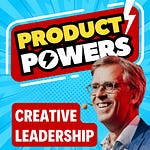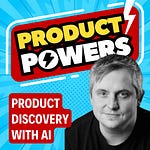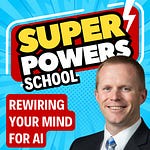Live Longer by Taking a Digital Detox with Colin Corby
With our lives increasingly dominated by screens and constant connectivity, the concept of digital detox has never been more relevant. Digital detox refers to taking a break from all forms of technology and going offline for a period. It's a way to focus on physical and mental well-being, free from the distractions of the digital world. Since the 1960s, we've become significantly less active, a trend that is likely to continue unless we make conscious changes. This can have severe health implications including shorter life spans and increased risks of illnesses.
This article is a summary of the conversation with my special guest, Colin Corby, who is a digital detox coach.
🧘♂️ The Concept of Digital Wellbeing
Digital wellbeing means balancing your technology use with your personal well-being. It's vital for your mental and physical health. Taking short breaks, spending time offline, and engaging in physical activities are essential for maintaining digital wellbeing.
🦸 Introducing Colin Corby
Colin's superpower is digital detox. Inspired by noticing how his children seemed glued to their devices, and remembering his personal health struggles, Colin focuses on helping others balance their digital lives.
Colin had a remarkable career in technology but suffered from stress in the 1980s. This led him to start swimming and eventually competing in triathlons, enhancing his understanding of the mind-body connection.
🤖 The Creation of Digital Detox Coach
In 2018, Colin transitioned into digital detox coaching. Combining his tech expertise with a passion for psychology, he created the Digital Detox Coach program to help people reduce their digital dependency.
🔌 Understanding Digital Detox
Digital detox refers to any period offline. This could be as brief as a 20-second break from the screen to as long as a weekend away from technology. The key is to take regular breaks to rest and recover.
🧬 Biological Perspective
Our brains consume far less power than supercomputers but achieve much more. As human beings, we have evolved to adapt and survive in a complex world, unlike simplified machines.
🍬 The Sweet Shop Analogy
Comparing the online world to a sweet shop, Colin explains that while digital devices are tempting and engaging, it's crucial to step away to allow your brain to process and reflect properly.
🤝 Social and Psychological Effects
Being glued to your phone not only affects you but also those around you. Focusing on devices over people sends a message that they are not important. Human interaction is key to happiness and mental health.
👨👧👦 Setting an Example
Parents need to lead by example. Just like children of smokers are more likely to smoke, children of parents who are always on their phones will also pick up similar habits. Setting boundaries and leading by example is essential.
🚶♂️ Building Good Habits
Creating new, healthy habits takes time. Start with small steps that you can do regularly. For example, leave your phone behind during meals or coffee breaks. Over time, these small changes add up to significant shifts in behavior.
🏃♀️ The Digital Detox Couch to 5K Program
Inspired by the NHS Couch to 5K running program, Colin developed a Digital Detox Couch to 5K. It includes challenges like the 'just one thing' challenge, where you use your phone for just one task at a time.
💤 Sleep and Technology
Avoid using screens in the last hour before bed and the first hour in the morning. The overstimulation can affect sleep quality. Using alternative alarms and creating a tech-free bedtime routine can help improve sleep.
🌅 Morning and Night Routines
Leave your phone in another room or use a different type of alarm clock. This way, you start and end your day without letting your phone set the day's agenda.
📋 Attention Management
It's more important to manage your attention than your time. Multitasking is not effective and can lead to increased stress. Focus on one task at a time to be more productive and reduce stress.
🧠 The Role of the Brain
Your brain works like a spotlight, focusing on one thing at a time. Constant switching between tasks can lead to stress and decreased productivity. Understanding how your brain works can help you manage your time better.
🏢 Educational and Corporate Insights
Screen time regulations are not new. Since the 1980s, companies have been encouraged to mandate screen breaks for employees. More recently, research supports the need for frequent breaks to ensure well-being.
📊 Insights from Gloria Mark's Research
Studies show that our attention span has decreased from 2.5 minutes to just 47 seconds over the last decade. This constant switching of attention increases stress levels, making focused work more challenging.
📧 Email Management
Constant email checks can drain your cognitive resources. Some studies suggest significant productivity improvements when employees are not constantly interrupting their work to check emails.
👫 Human Connection
Human interaction is crucial. When people constantly check their phones during conversations, it can harm relationships. Deep, face-to-face interactions strengthen bonds and improve mental health.
📱 The Impact of Social Media
Constant exposure to social media and news can overstimulate the mind and lead to stress. Taking breaks from these platforms can offer mental clarity and allow for more meaningful offline experiences.
🤖 Identity and Technology
Colin's TEDx talk explores whether we are losing our identity to technology. He suggests creating tech-free zones at home where you can engage in offline activities, helping you reconnect with yourself.
🧩 The Science of Attention
Attention is like a muscle; the more you train it, the stronger it gets. Engaging in activities that require focus, like reading physical books or meditating, can improve your attention span.
🎨 Controlled Illusions and Perception
Our perception of reality is a controlled illusion made up of the information our senses gather. This is different for every creature on Earth and understanding this can help us appreciate our own experiences more fully.
🧩 Neurodiversity and Adaptation
Just as our senses differ from other animals, so do our cognitive processing styles. Neurodiversity ensures a range of skills and strengths, contributing to our ability to adapt and thrive.
🤖 AI and Human Skills
While AI has its place, it is not a replacement for human experience and creativity. We must not outsource too much to AI and forget the skills that make us uniquely human.
🎨 Creativity and Experience
Gaining diverse experiences enriches our ability to think creatively and solve problems. Lifelong learning and a variety of experiences are crucial for personal and professional development.
📈 Future Prospects
We need balance. While technology offers many benefits, it's essential to incorporate offline activities. This balance will lead to a more rounded and fulfilling life.
📝 Summary of Practical Tips
Create tech-free zones.
Establish morning and night routines without screens.
Implement the 'just one thing' challenge.
Take regular breaks and engage in physical activities.
🔨 Resources and Tools
Check out the Digital Detox Couch to 5K program by Colin. It's a free resource to help you start your digital detox journey without overwhelm. Try the program to find what works best for you.
🎯 Final Thoughts
Digital detox is crucial for overall well-being. Begin with small steps and gradually make lasting changes. Balance is key to leading a healthy, productive life.
FAQs
Q: What is digital detox? A: Digital detox is a period where you unplug from technology and go offline.
Q: Why is a digital detox important? A: It helps improve mental and physical well-being by reducing stress and screen time.
Q: How can I start a digital detox? A: Begin with small steps like creating tech-free zones and setting specific times for digital breaks.
Q: What is the Digital Detox Couch to 5K? A: It's a program similar to the NHS Couch to 5K, designed to help you reduce digital dependence in small, manageable steps.
Q: How often should I take a digital detox? A: Regular short breaks are essential, but it's also good to have longer breaks like a weekend away from technology occasionally.
Guest: Colin Corby
TEDx Speaker, Leadership Wellbeing, Digital Detox and Mindset Coach. Creator of 'The Digital Detox Coach', technologist and endurance athlete.
I created ‘The Digital Detox Coach' in 2018 as I was fascinated by the collision between technology and psychology and how this relationship is changing our world, our health and even the way we think. I am passionate about helping people and organisations achieve a healthier, more productive, and ethically sustainable relationship with technology.
I have over 30 years’ experience in leading technology companies which, together with the mindset of an athlete, I bring to my technology wellbeing practice.
My personal journey started when I experienced a period of stress in my mid-thirties and found that through exercise and becoming fit again significantly improved my mental resilience to stress, and at the same time changed the way that I thought and reacted to events. This led me on a journey of mindset exploration and research that has enabled me to complete four Ironman triathlons and am currently training to swim the 10.5 miles of Lake Windermere in Cumbria, England.
I love to talk about digital detox, the importance of mindset and wellbeing for leaders and managers, and why they should become business athletes, the impact of AI, why age is just a number, Cultural blindness and the impact of technology on the planet.
Speaker, author and co-author of a number of articles including:
TEDx speaker at Lake Superior State University in Michigan, USA on 22 March 2023 with the talk "Are We Losing our Human Identity to Technology?". The talk was co-presented with Ana Smith.
Appeared as a digital detox expert on the BBC Wales X-Ray program in October 2022.
Author and co-author of a number of articles on the future of work, digital culture and digital detox including:
Digital Transformation – The Human Experience - May 2022
Why a Healthy Digital Culture Matters – Jan 2021
Disconnect to Reconnect – Digital detox for health and wellbeing – Nov 2019
Is our digital footprint killing the planet? – Jan 2022
Links:
Website: www.TheDigitalDetoxCoach.co.uk
Digital Detox 'Couch to 5k' free resource: https://thedigitaldetoxcoach.co.uk/resources
TEDx talk:











